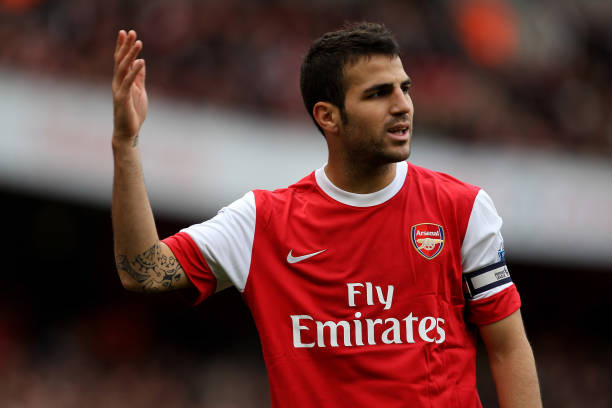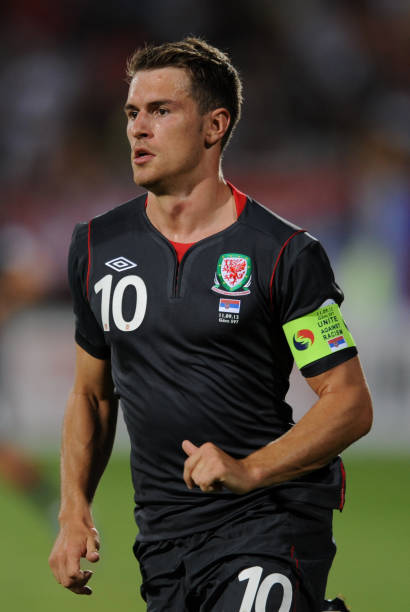
Beyond the Armband: Unpacking the Phenomenon of Football’s Youngest Captains
In the intricate tapestry of football, the captain’s armband is more than just a piece of fabric; it is a profound symbol of leadership, responsibility, and unwavering dedication. It signifies the trust placed in an individual to guide, inspire, and represent their team on and off the pitch. Traditionally, this esteemed role has been bestowed upon seasoned veterans, players who have amassed years of experience, wisdom, and a deep understanding of the club’s ethos.
However, every so often, a rare phenomenon emerges: a young prodigy, barely out of their teenage years, is entrusted with this immense responsibility. These are the footballing wunderkinds who, despite their tender age, possess an extraordinary blend of maturity, tactical acumen, emotional intelligence, and an innate ability to command respect from peers, many of whom might be significantly older and more experienced. The appointment of a young captain is not merely a testament to their individual brilliance but a bold statement by a club, signaling immense faith in their potential and their capacity to lead from the front.
This article delves into the fascinating world of football’s youngest captains, exploring the qualities that elevate them to such a prestigious position, the immense pressure they face, and the indelible mark they leave on their clubs and the sport itself. We will highlight some of the most prominent examples of these exceptional individuals who defied convention and embraced leadership at an age when most are still finding their footing in professional football.
The Weight of the Armband: What It Takes to Lead So Young
Being a captain is inherently challenging. It demands not only exceptional footballing ability but also strong communication skills, tactical understanding, the capacity to motivate teammates, resolve conflicts, and act as a crucial link between the players and the coaching staff. For a young player, these demands are amplified exponentially.
Imagine a teenager, perhaps 18 or 19, walking onto a pitch to lead a team comprising seasoned professionals in their late twenties or thirties, some of whom might even be international stars. This scenario presents unique psychological and practical hurdles:
- Commanding Respect: Earning the respect of older, more experienced teammates is paramount. Young captains often achieve this not through vocal authority alone, but by leading by example – through their relentless work ethic, consistent high performance, unwavering commitment, and mature demeanor.
- Emotional Intelligence: Navigating the highs and lows of a football season requires significant emotional resilience. A young captain must be able to remain calm under pressure, lift spirits after a defeat, and manage the diverse personalities within the squad.
- Tactical Acumen: While coaches dictate the overarching strategy, the captain often needs to make quick decisions on the pitch, organize the team, and implement tactical adjustments in real-time. This demands a deep understanding of the game beyond their individual role.
- Media Scrutiny: Captains are the public face of the team. Young captains are thrust into the spotlight, expected to articulate the team’s performance, handle criticism, and represent the club with composure, all while still developing their own public persona.
- Balancing Personal Development with Leadership: At an age when many players are still focused solely on honing their individual skills and finding consistency, young captains must simultaneously shoulder collective responsibility. This can be a double-edged sword, either accelerating their development or, in some cases, stifling it due to overwhelming pressure.
Despite these challenges, the players who ascend to captaincy at a young age possess an extraordinary cocktail of inherent talent and cultivated maturity. They are often "old souls" in young bodies, exhibiting a wisdom and composure far beyond their years.
Iconic Young Captains: A Gallery of Prodigies
History is replete with examples of players who wore the armband early in their careers, some of whom went on to become legends of the game.
1. Ruben Neves (FC Porto)
Perhaps one of the most striking examples in modern football is Ruben Neves. On October 20, 2015, at just 18 years and 221 days old, Neves made history by captaining FC Porto in a UEFA Champions League match against Maccabi Tel Aviv. This made him the youngest captain in Champions League history, surpassing a record previously held by Rafael van der Vaart. Neves, a defensive midfielder with an exceptional passing range and tactical awareness, had already broken into Porto’s first team at 17. His appointment as captain underscored his remarkable maturity and the faith Porto placed in his ability to dictate play and lead from the midfield. His calm demeanor and intelligent play belied his age, making him a natural choice for a leadership role even at such a nascent stage of his career.
2. Matthijs de Ligt (AFC Ajax)
Another prominent example from the Champions League stage is Matthijs de Ligt. He became AFC Ajax’s youngest ever captain at 18 years and 175 days old in December 2017, taking over the armband from Joel Veltman. De Ligt, a towering central defender, quickly established himself as a dominant force. His leadership qualities were undeniable, marked by his assertive defending, vocal organization of the backline, and crucial goals. He famously led Ajax to the Champions League semi-finals in the 2018-2019 season, defying all expectations with a team predominantly composed of young, homegrown talents. His maturity and composure under immense pressure, particularly in high-stakes European nights, solidified his reputation as a generational talent and a natural leader.
3. Cesc Fabregas (Arsenal)
In the English Premier League, Cesc Fabregas stands out. Having arrived at Arsenal as a precocious teenager, Fabregas quickly became the creative heartbeat of Arsene Wenger’s side. On November 27, 2008, at 21 years and 212 days old, he was named Arsenal captain, succeeding William Gallas. While slightly older than Neves or De Ligt at the time of his captaincy, Fabregas’s appointment was still remarkably early for a club of Arsenal’s stature. He had already spent five years in the first team and was undeniably the team’s most influential player. His captaincy marked a period of transition for Arsenal, and despite the challenges of competing with dominant Manchester United and Chelsea teams, Fabregas led by example with his sublime passing, vision, and tireless work rate, embodying the attacking philosophy of the club.
4. Gianluigi Buffon (Parma)
One of football’s most enduring legends, Gianluigi Buffon, also had an early taste of captaincy. At just 20 years old in the 1998-99 season, he occasionally wore the armband for Parma, a team that would go on to win the UEFA Cup and Coppa Italia that season. While not a permanent appointment at that age, it speaks volumes about the respect he commanded even as a young goalkeeper. Buffon’s leadership was characterized by his commanding presence, exceptional communication from the back, and unparalleled consistency. His early experience with the armband at Parma undoubtedly shaped his later career, where he became the long-serving captain of Juventus and the Italian national team, leading both with immense authority for decades.
5. Iker Casillas (Real Madrid)
Similar to Buffon, legendary goalkeeper Iker Casillas also showed early leadership at Real Madrid. Having debuted for the senior team at 18, Casillas eventually became the club’s permanent captain in 2010, taking over from Raúl González. While he was 29 years old at that point, Casillas had already served as a vice-captain for many years and frequently wore the armband in Raúl’s absence from a relatively young age. His early ascent to first-team prominence and his consistent heroics in goal made him a natural leader by example long before he officially donned the captain’s armband full-time. He personified the spirit of Real Madrid, leading them to numerous domestic and European triumphs.
6. Lamine Yamal (FC Barcelona – Unofficial/Future)
While not yet officially a captain, Lamine Yamal deserves mention as a player who is already exhibiting astonishing leadership qualities at an unprecedented age. Having debuted for Barcelona at just 15 years old, and for the Spanish national team at 16, Yamal has consistently showcased a maturity and confidence far beyond his years. In several matches, particularly during the 2023-2024 season, he has been seen giving instructions to older teammates, showing tactical awareness, and driving the team forward with his fearless dribbling and decision-making. Should he remain at Barcelona, it is almost inevitable that he will wear the captain’s armband at a remarkably young age, potentially even breaking previous records, given his meteoric rise and the trust already placed in him by the coaching staff. His potential captaincy would signify a new era of youth leadership in modern football.
The Long-Term Impact and Legacy
The journey of a young captain is often a crucible that either forges a future legend or places an unbearable burden. For those who thrive, the experience can be transformative, accelerating their development into complete players and influential figures within the sport. It teaches them resilience, strategic thinking, and the art of managing people, skills that extend far beyond the football pitch.
However, the path is not without its pitfalls. The relentless pressure, the expectation to perform consistently, and the need to lead a diverse group of individuals can sometimes be too much. Some promising talents have found the captaincy to be an additional weight, impacting their individual performance or even their enjoyment of the game.
Ultimately, the phenomenon of young captains underscores a fundamental truth about leadership: it is not solely a function of age or experience, but rather a unique blend of innate qualities, character, and an unwavering commitment to the collective. These individuals, who defy the conventional wisdom of waiting for seniority, embody the spirit of courage, maturity, and foresight. They remind us that true leadership can emerge from the most unexpected places, often from those who are just beginning their journey, yet possess an old soul and an unyielding will to guide their team to glory.
In an ever-evolving sport, the emergence of these young leaders is a fascinating trend, signaling a shift towards valuing innate leadership qualities and tactical intelligence as much as, if not more than, mere years of experience. They are not just players; they are the future architects of the game, setting new benchmarks for what it means to lead from the front, even when the journey has just begun.



